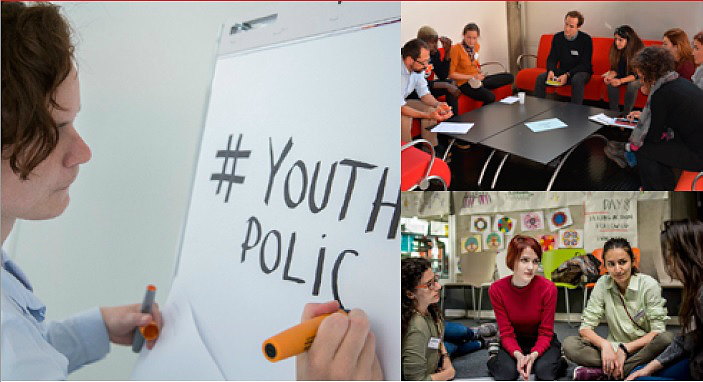The aim of the project is to build capacities of those involved in youth policy in different countries and from different angles (governmental, non-governmental and research) with a vision to strengthen their youth policy work on the basis of the know-how and principles promoted by the EU-CoE youth partnership and its two partner institutions.
The key of the project is bringing together a limited number of national delegations with a special composition of actors from the different angles of youth policy. Bringing these actors together is important as, according to the youth policy principles promoted by the EU – CoE youth partnership, youth policy should be based on evidence, should listen to the voice of young people and should be based on the co-operation between different actors involved in the youth field in order to respond to young people’s needs and aspirations.
The project offers a variety of activities, in the form of online learning, 2 residential training seminars (France and Italy), implementing a delegation plan, advice and expertise support, networking and a study visit in Ireland.
Project objectives:
Build capacities of youth policy actors to strengthen youth policy on the basis of the know-how and principles promoted by the EU-CoE youth partnership and its partner institutions
Contribute to a culture of co-operation among different actors for supporting youth policies within each participating country
Create a space for peer exchange on youth policy
Accompany and build the capacity of national delegations to develop and implement a delegation plan within each country’s national context.
Participants:
The project involved 30 participants, from 5 countries (France, Italy, Ireland, North Macedonia, Russian Federation), recruited as national delegations on the basis of interest and relevance for their current youth policy practice and roles.
Project phases:
Phase 1 online and offline (March to May 2019)
- Two-month online phase, bringing participants to a common level of understanding of youth policy concepts, principles, approaches
- Two meetings of the delegations to prepare their delegation ideas and plan
Phase 2 residential four-day training seminar (20 – 24 May 2019, Strasbourg, France)
- A training seminar aiming to strengthen competences on youth policy, enhancing cooperation in the national delegations and the preparation of their delegation plan, supporting networking and peer learning among delegations.
Phase 3 co-operation phase (May 2019 to March 2020)
- Implementation of delegation plans and support measures for the delegations in this process
Phase 4 a study visit (Ireland, 21-23 October 2019)
- A two-day study visit to one of the participating countries, focusing on learning from practice and critical analysis of the work done in phase 3.
Phase 5 a consolidation seminar (online, November 2020)
- A three-day seminar, consolidating the learning from the project previous phases and bringing new knowledge on youth policy.

